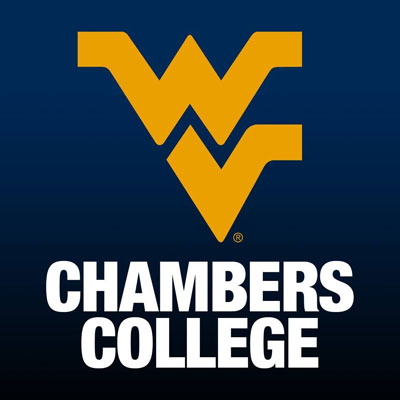While students, faculty and alumni of West Virginia University are recognized just about every day in the media for various accolades, research success stories and innovation in the higher education industry, Dr. Ajay Aluri of the College of Business and Economics is taking the WVU name – and the success of the Hospitality and tourism management program – all the way to Silicon Valley.
Aluri, assistant professor in the management department, has been invited to speak at the Internet of Things (IoT) Summitin San Francisco next month on his research specifically pertaining to the future of wearable devices in the IoT.
“While I’m the only speaker from academia, the others are owners and leaders of startups, big names in the technological industry and cutting-edge companies who deal with the latest technology every day,” Aluri said. “To visit the IoT Summit website and see the flying WV logo listed among those of Apple, Samsung, Sony, BMW and more is incredible.”
Aluri believes that his involvement in the conference sends a message to the nation that professors at WVU are doing research that’s geared toward the industry, which is preparing its students ahead of other universities in the mix.
“This conference isn’t just encompassing hospitality and tourism, either, but rather a much broader look at technology and its future,” he said. “It’s big-picture, and that’s where we want to be. We want to show people in the industry that, in terms of technology, our students have explored the concepts and completed projects on big data, IoT and virtual and augmented reality using the latest tools and applications. They’re familiar with these trends, and from now until five or so years down the road, it’s important to know these concepts to be ahead of the game.”
He also recently returned from Hotel Technology Next Generation’s (HTNG) North American Conference 2016 in Amelia Island, Florida, where he spoke to top executives, C-suite level personnel and other industry leaders about his research on virtual and augmented reality with regard to the hotel industry. HTNG’s conferences are focused on networking, education and personal or business development for its members, and feature top industry experts discussing issues facing hospitality technology.
“It’s great to be among these high-level executives, speaking on behalf of my hotel and tourism-related research; it not only puts my name as a WVU professor out there to show B&E’s innovative research, but it also puts our program on the map,” he said.
As with the IoT Summit, most of HTNG’s conference speakers were company founders, research group leaders, authors and global speakers – and again, the only speaker coming strictly from academia was Aluri.
“We’re building a strong foundation with our program in which industry people are noticing us, and soon enough we’ll have large corporations knocking down our doors to hire our students. Why? Because they’re learning real-world concepts of technology, big data and IoT, as well as virtual and augmented reality, and applying them to their classroom projects.”
Aluri’s research interests include hospitality management and information systems, predominantly in the areas of wearable technology (augmented and virtual reality), Internet of Things, data mining, social media and consumer behavior.
His research has been published in several academic journals including Cornell Hospitality Quarterly, International Journal of Contemporary Hospitality Management, Journal of Hospitality and Tourism Education and Journal of Hospitality and Tourism Technology. He is also currently serving as a director of research (2015-2017) for the North East North American (NENA) Federation at the International Council of Hospitality, Restaurant, and Institutional Education (ICHRIE).
It is Aluri’s hope that a collaborative, written proposal with Prof. Frank DeMarco for a new research center and innovation lab for the hospitality and tourism management program will be approved for future students who come through the program.
“Our small program currently has a 100 percent job placement rate, and while we want to grow our program by about 30 more students, we want to maintain its boutique program status and really focus on the students to appropriately train and place them with the right businesses,” Aluri said. “We’ve been there from the beginning, when HTOR was just an area of emphasis with five students. Now, with our 32 current students in the major, we’re looking to the future, when we have 50 to 70 students and we’re known nationwide as the leading program in the rise of digital and algorithmic business.”

